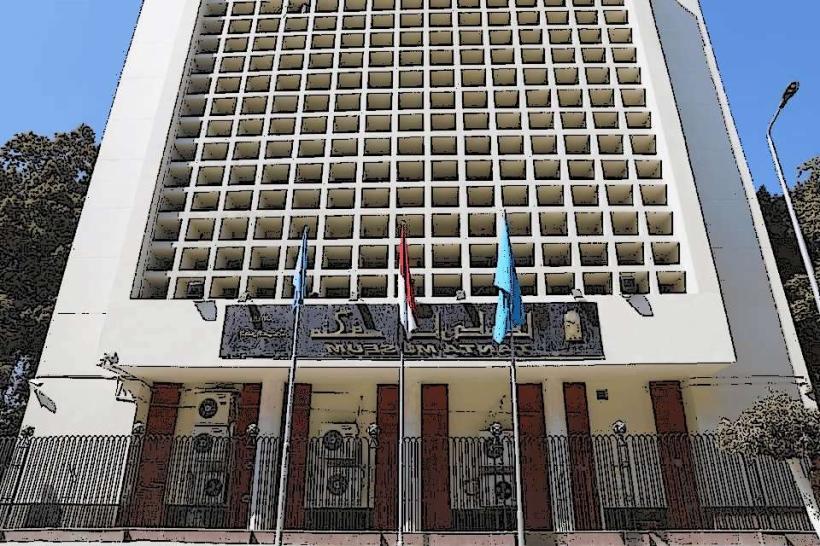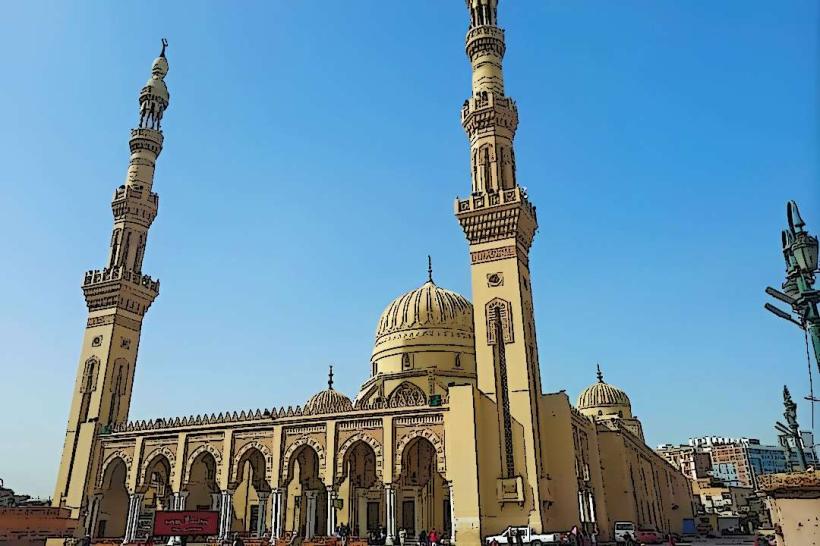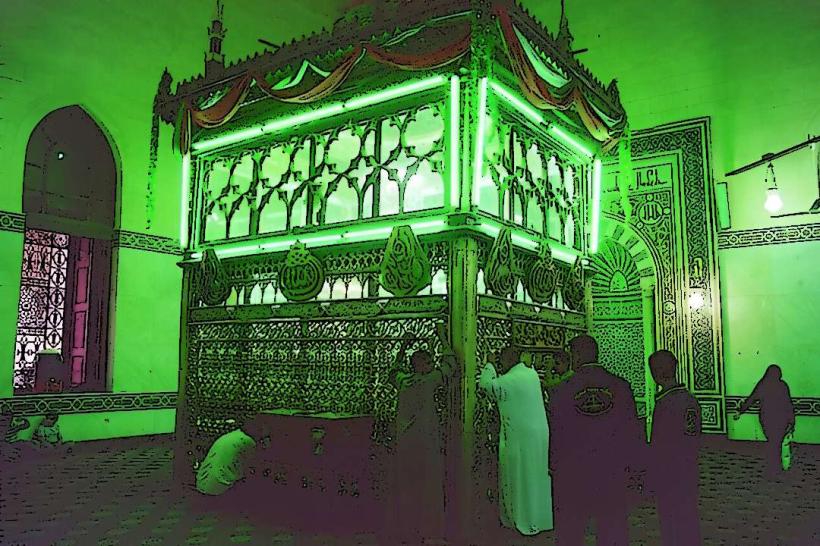Information
Landmark: Al-Mahmoudiyah MosqueCity: Tanta
Country: Egypt
Continent: Africa
Al-Mahmoudiyah Mosque, Tanta, Egypt, Africa
Al-Mahmoudiyah Mosque is a significant religious structure located in the city of Tanta, Egypt.
This mosque serves as a central place of worship and a historical site within the region.
Visual Characteristics
The mosque features a central dome constructed from concrete, supported by four minarets. Its exterior walls are primarily composed of light-colored stone. The main prayer hall is rectangular, with a high ceiling and decorative Islamic calligraphy adorning the interior surfaces. The architectural style incorporates elements of traditional Islamic design with modern construction techniques.
Location & Access Logistics
Al-Mahmoudiyah Mosque is situated in the Al-Mahmoudiyah district of Tanta. It is approximately 2 kilometers south of Tanta's city center. Access is via Al-Mahmoudiyah Street, a paved urban road. Limited street parking is available in the vicinity, and visitors should be prepared for potential congestion during peak hours. Public transport options include local bus routes that stop near the mosque, with the nearest major bus terminal being Tanta Central Bus Station, located 3 kilometers north.
Historical & Ecological Origin
The mosque was constructed in 1909. It was commissioned by Sheikh Mahmoud Al-Mahmoudi, a local benefactor, and designed by an Egyptian architect whose name is not widely recorded. Its original purpose was to serve as a congregational mosque for the growing population of the Al-Mahmoudiyah district and as a center for religious education.
Key Highlights & Activities
Visitors can observe the mosque's architectural features and interior design. Prayer services are held daily. Religious lectures and educational sessions are sometimes conducted within the mosque premises. Photography is permitted in designated outdoor areas, but visitors are requested to be respectful of worshippers.
Infrastructure & Amenities
Restrooms are available for visitors. Shaded areas are present in the courtyard. Cell phone signal (4G/5G) is generally strong within the mosque complex. Food vendors and small shops are located on the streets surrounding the mosque, offering local snacks and beverages.
Best Time to Visit
For optimal lighting for photography of the exterior, early morning (7:00 AM - 9:00 AM) or late afternoon (4:00 PM - 6:00 PM) is recommended. The best months for visiting Tanta, in general, are from October to April, avoiding the extreme summer heat. There are no tide-related considerations for visiting the mosque.
Facts & Legends
A local tradition states that the foundation stone of the mosque was laid on a night of significant astronomical alignment, though this is unverified. It is also said that the mosque's construction was completed in a remarkably short period due to the dedication of the local community.
Nearby Landmarks
- Tanta University (1.2km Northwest)
- Tanta Museum (2.5km North)
- Al-Sayed Al-Badawi Mosque (2.8km North)
- Tanta Railway Station (3.0km North)




